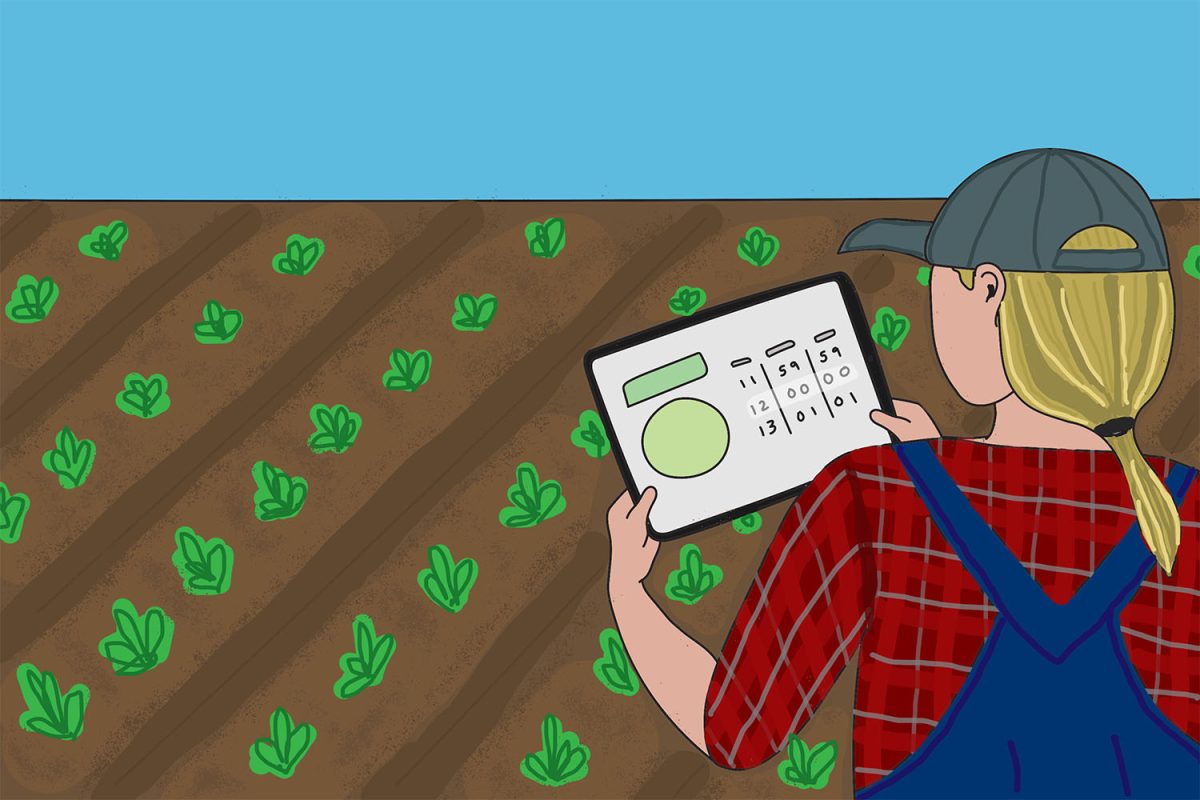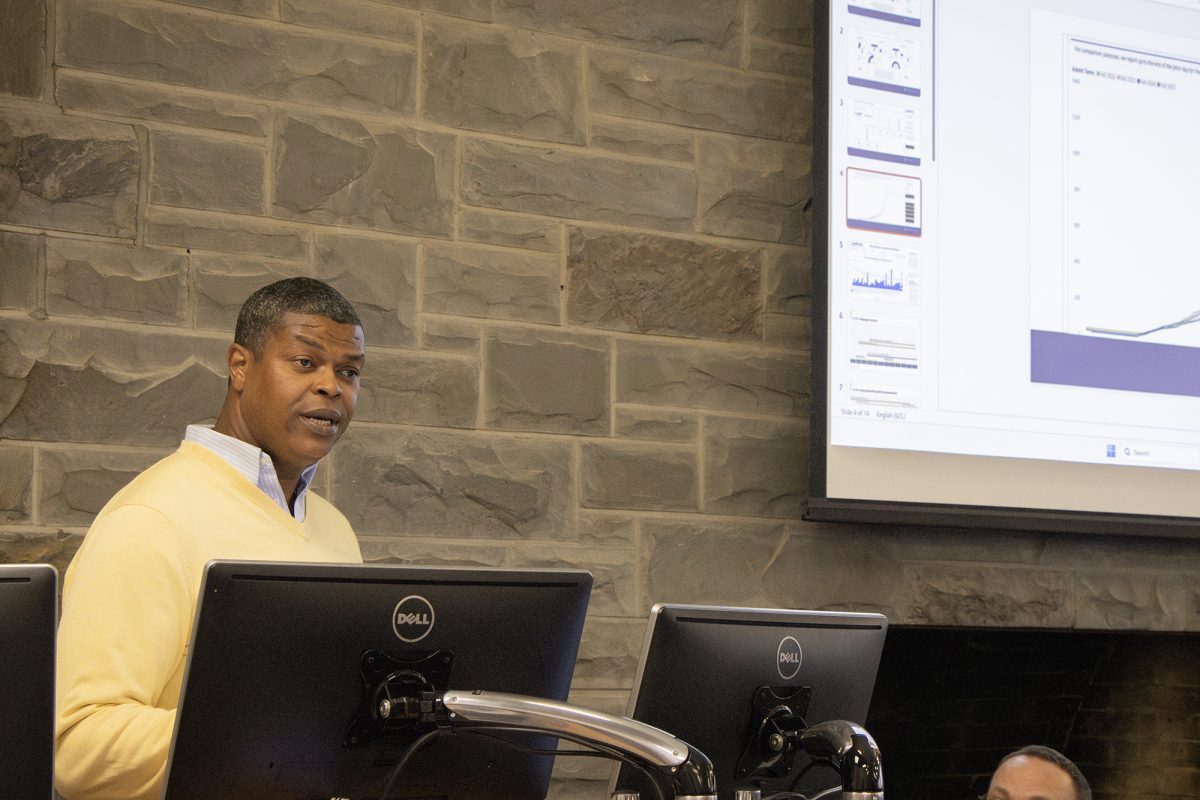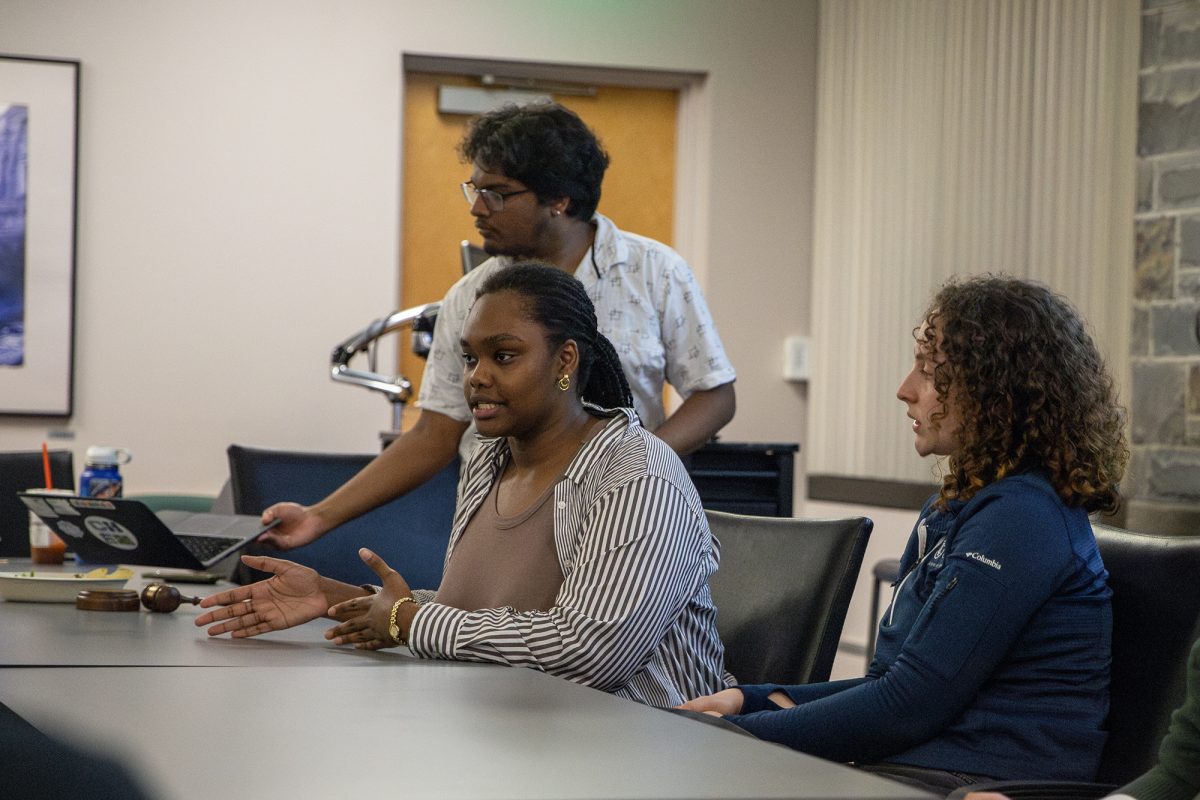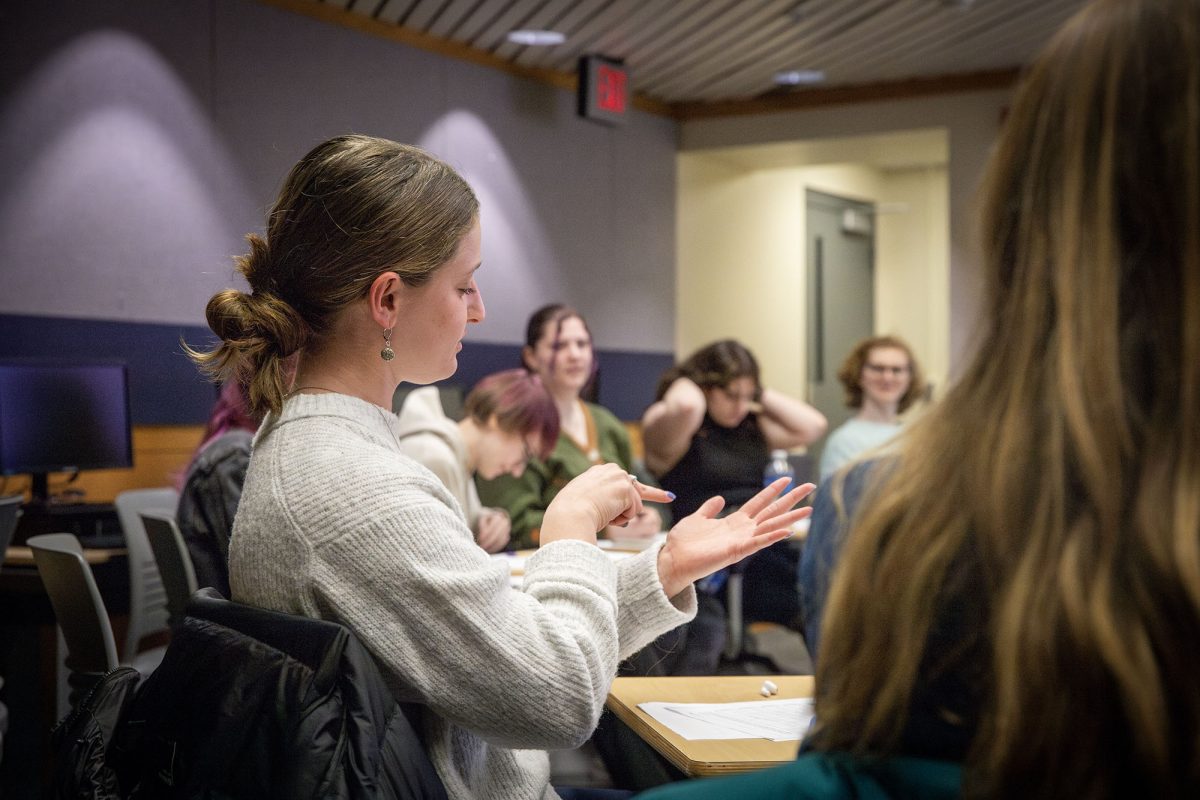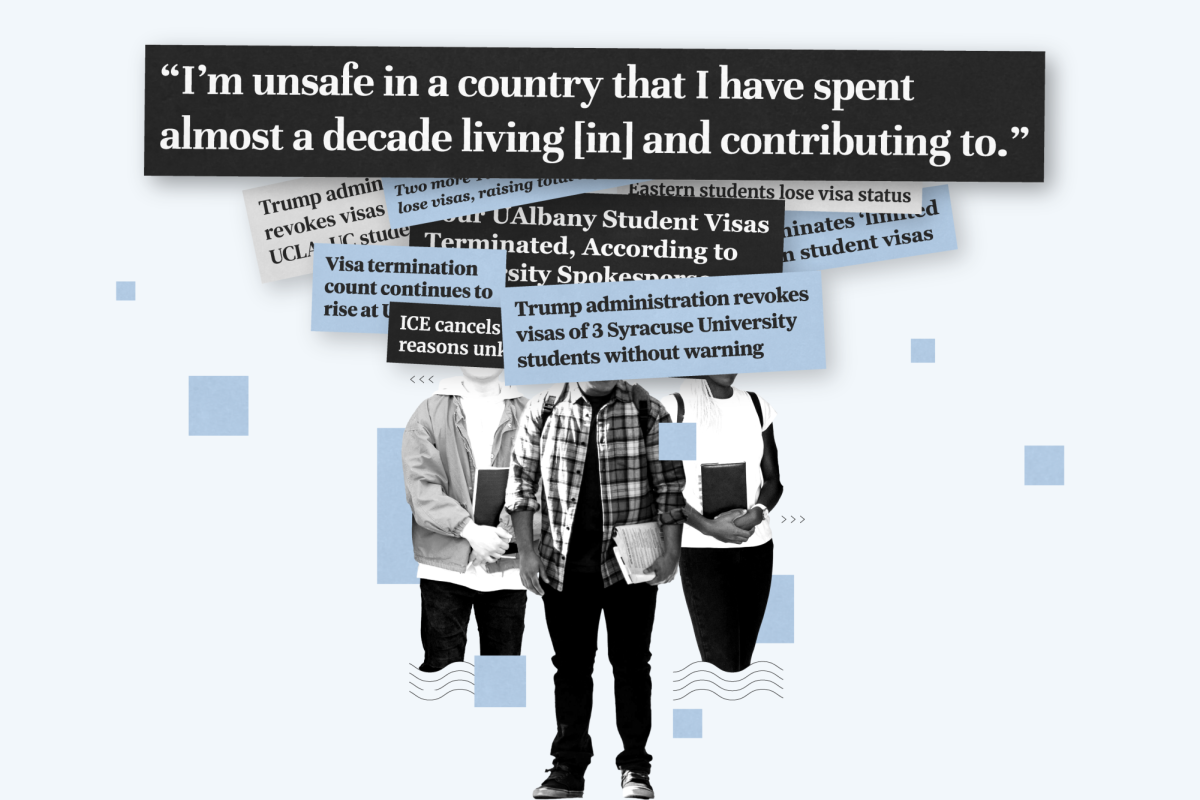The New York State Agriculture Commissioner announced the Hunger and Food Policy annual report Feb. 15, which highlighted digital agriculture as a primary source in fighting food insecurity within the state.
The report included that Cornell University’s College of Agriculture and Life Science (CALS) created The Cornell Institute for Digital Agriculture (CIDA) in 2018, which is focused on creating technology that digitizes farmer’s agricultural practices and improves food systems globally.
Digital agriculture uses advanced technology to collect data that is used to improve farm practices, which will increase food production. Some digital agricultural practices include smart irrigation, precise fertilizer strategies and seed selections. Since 2022, CIDA has worked on a strategic plan that is centered around broadening research, gaining more participation and accepting ideas toward new innovations in agricultural research.
In an article by Morning AgClips, Diane Bailey, the Geri Gay professor of communication at Cornell University and director of CIDA, discussed the importance of digital agriculture. Bailey said in the article that the global food system faces serious challenges. She said that while the production of food in the U.S. contributes and affects global climate change, digital agriculture is a solution to these challenges.
Food insecurity impacts 24.9% of adults within New York state and 11.2% to 39% of adults report food insecurity, according to a report released by the New York State Department of Health. Feeding America stated 14% of people were food insecure in Ithaca and Tompkins County in 2018.
Karen Walls, executive assistant of Student Affairs and Campus Life at Ithaca College and primary coordinator of the Pruntry’s Pantry, said she has noticed a steady incline of people that go to the pantry. Walls said that this is because more people are aware of the pantry and that there is less of a negative stigma behind going to a food pantry.
“I mean, I still meet seniors still to this day who still don’t know that there’s a food pantry on campus,” Walls said. “So we are trying different marketing tactics to get the word out there that there is a food pantry on campus. People are now using it more as a resource and saying ‘You know what, I need help and that’s okay.’ And that’s the word that we’re trying to put out there that it’s okay to ask for help and it’s okay to get help.”
Hilary Kellner-Davis, co-director of Taste of the Finger Lakes, said the organization has given 100% of ticket proceeds from events like the annual food and beverage showcase to nonprofit beneficiaries doing work to improve food security in the Finger Lakes region for the past two years.
In February 2024, Taste of the Finger Lakes opened up a grant funding process that offered local organizations fighting food insecurity in Ithaca and the Finger Lakes region up to $10,000. The application closed Feb. 29 and organizations that are selected will receive funds in August 2024.
Kellner-Davis said the volunteer committee decided to maximize its giving efforts by creating an open application because of the emergence of new organizations and the rise of food insecurity. The organizations that are chosen will be announced in April.
“We’re really looking at organizations that are both alleviating immediate needs as well as those that are trying to change systems so they will have a long-term downstream effect,” Kellner-Davis said.
Kellner-Davis said she is disappointed to see food insecurity becoming an ongoing issue despite many organizations working to improve it.
“There is sort of this simultaneous excitement at how many organizations are helping to fill this need in the area, while also being sad that so many organizations need to exist,” Kellner-Davis said.
Local organizations in the City of Ithaca and Tompkins County, with the help of initiatives like The New York State Farm-to-School Program and the 30% NYS Initiative, are working to combat food insecurity in New York state.
The 30% NYS Initiative encourages schools to use New York state farm products. New York state school districts that purchase 30% of their school lunch ingredients from New York farms, will be given a reimbursement for lunches from 5.9 to 25 cents per meal.
Christa Núñez, founder and director at The Learning Farm, said she and her family purchased the farm to support children and their families from marginalized backgrounds so that they can learn how to grow their own food, take care of animals and how to plant food.
Núñez said the 30% NYS Initiative and the New York State Farm-to-School Program are a good starting place for bringing food justice work and the benefits of access to healthy food to communities, but Núñez said this should not be the end.
“Food has a lot to do with where you live and what growing opportunities you have,” Núñez said. “If we’re going to deal with the problem of food insecurity and food apartheid, we have to do that in ways that address the interconnections with housing and capital and land access. So because food is grown on land, and if people are to eat well, they should be in control of what they’re eating through their own means.”
The New York State Farm-to-School Program works to ensure that children in K-12 schools have access to healthy meals by connecting schools to local farms and food producers. This in turn also helps New York State farmers as they get increased economic benefits through the program. Additionally, schools, farms and organizations that are farm-to-school receive technical and promotional assistance from the New York State Department of Agriculture and Markets.
Sean McKean, Farm-to-School program coordinator at Tompkins Seneca Tioga BOCES, said Farm-to-School allows for schools to rethink their approach to food at school, which includes how it is prepared, where it is coming from and the cafeteria environment.
“Farm-to-School is a cool place to look back and kind of see those things,” McKean said. “The food service department is like, ‘We just got to serve them.’ So being able to be that person that can kind of leading from a wellness space to say, ‘Well, here’s all the moving pieces,’ like it’s not just the food we serve, it’s how we serve it to them and all of those things make up the sort of food environment and make the difference between somebody wanting to come in and eat a meal and not.”
Cheryl Bilinski, agricultural economic development specialist at Cornell University, said the 30% initiative has excelled in being accessible to New York state schools. Bilinski said schools that are low on funds can still apply for the 30% initiative because of the reimbursement that they receive for purchasing local foods.
“I think the 30% initiative has been a game changer in catalyzing local food procurement,” Bilinski said. “I feel like all we ever are doing in this work is knocking down barriers and then coming up to the next and saying ‘How do we knock this one down?’”


